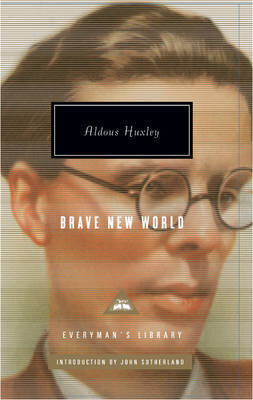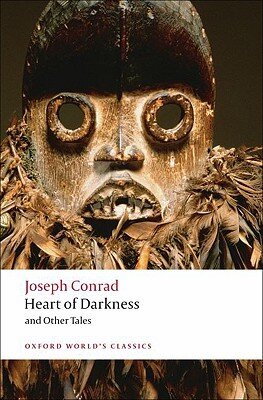This review is part of a re-reads series; My friends and I are reading classics we had read in our youth and reviewing them. Readers should also be aware that this review makes important plot points explicit.
“Brave New World” is itself the subject of numerous academic works; each is rife with its own analysis of both Huxley’s goals, and his brilliant allusions and metaphors. To avoid one of the many cardinal sins in literary works, let us reread this work from a different, and modernized perspective by using 2004’s The Incredibles. A common and well-known theme in “The Incredibles” is the idea that if everyone is special, then no one is. This is in fact what is at the heart of “Brave New World,” — let's ignore the themes of hedonism and extreme utilitarianism for a moment. What is the deeper meaning behind “if everyone is special, then no one else is”? We need not be geniuses to know that it is a claim of differentiation. I am only smart if there is a benchmark for intelligence and idiocy. The Alphas, Alpha Pluses… abide by these rules of class warfare simply because they are conditioned to believe that it is the best for society and it is the most efficient way to live in a community, and where Huxley’s conformity dilutes the hedonistic pursuits of the World State’s citizens, Orwell’s Nineteen-Eighty-Four saturates these pursuits and events because they are outlawed.
In Huxley’s world, punishment is rare and mild because everything is permitted. I purposefully used the word “everything” here, because outlawed actions and events are rarefied due to the hypnopaedia conditioning. Characters rarely think outside their classes and never co-mingle in between them. In Nineteen-Eighty-Four, characters’ motives and actions are contingent on their odds of getting caught, and if they do get caught, how harsh the punishment will be. This is where the novels differ. The incredible personal monitoring of each individual citizen in Nineteen-Eighty-Four as an allegory for Stalinist Russia contrasts the very impersonal apathy of Brave New World. We rely more on the number of our Instagram followers or retweets, all of which are impersonal since we might never meet the follower or retweeter, than we do on honing our personal relationships with one another.
The urban personality demands impersonal relationships and connections, we know less about our neighbours and even less about ourselves and our loved ones; all identities and thoughts seem to merge á la Brave New World. For if we are all the same, one’s success belongs to everyone else and one’s failure only demarcates how society has failed an individual. Violence is rare if not non-existence in the World State because nearly everyone in their classes look identical — they all have near identical physical characteristics due to gene therapy, and similar personalities due to conditioning. Thus if we hurt someone else, we are only hurting ourselves, and how does that better the society we are conditioned to protect? Furthermore, opening the newspaper or watching cable T.V., we are at once confronted with the very distractions Huxley uses as satire to demarcate apathy from real issues when they do not affect us personally. Political discourse never occurs because citizens are too busy discussing The Walking Dead Three Weeks in a Helicopter. When someone is unhappy, they simply take a pill and forget all their worries. … For a different conceptualization of this idea, Nozick’s experience machine appears in his 1974 work: Anarchy, State, and Utopia. Nozick argues against Betham’s hedonism. If most people do not want to be plugged into this machine and only experience pleasure, then the nature of what is good and how our value systems shape our sensory formations changes to something more definitive and complex than simply: pursue pleasure and avoid pain. In Huxley’s World State, “community, identity, stability,” coupled with “everyone is everyone else,” are used as a measure of social control “major instrument of social stability” in order to increase production and efficiency. The former carries an extreme capitalist overtone while the latter deters and implicitly punishes non-conformity. Thus no single citizen is rewarded or pushed to pursue their individuality. In fact, characters are ostracized if they are not promiscuous and/or hold consistent beliefs contrary to the values of the World State. If we are all the same, our intentions are irrelevant because the destination remains static. “And yet the man had meant well enough. Which only made it, in a way, much worse. Those who meant well behaved in the same way as those who meant badly.” (Chapter Four, §2)
Now this is not to say that there is no existential soul-searching in the World State. Bernard and Helmholtz are both partial to their positions as Alphas and dialogues that both reflect ideas contrary to their conditioning, and ambitions that do not coincide with society’s improvement as a whole.
Helmholtz shook his head. "Not quite. I'm thinking of a queer feeling I sometimes get, a feeling that I've got something important to say and the power to say it–only I don't know what it is, and I can't make any use of the power. If there was some different way of writing … Or else something else to write about …" He was silent; then, "You see," he went on at last, "I'm pretty good at inventing phrases–you know, the sort of words that suddenly make you jump, almost as though you'd sat on a pin, they seem so new and exciting even though they're about something hypnopædically obvious. But that doesn't seem enough. It's not enough for the phrases to be good; what you make with them ought to be good too."
However, this differs greatly from the understanding that their conditioning in fact forbids them from making any serious actions or eradicating their obsessions with their sought-after statuses.
The difference between the classes then, must be hidden with the World State’s obsession with efficiency. We are immediately told in Chapter One:
If the children were made to scream at the sight of a rose, that was on grounds of high economic policy. Not so very long ago (a century or thereabouts), Gammas, Deltas, even Epsilons, had been conditioned to like flowers–flowers in particular and wild nature in general. The idea was to make them want to be going out into the country at every available opportunity, and so compel them to consume transport. … Primroses and landscapes, he pointed out, have one grave defect: they are gratuitous. A love of nature keeps no factories busy. It was decided to abolish the love of nature, at any rate among the lower classes; to abolish the love of nature, but not the tendency to consume transport. For of course it was essential that they should keep on going to the country, even though they hated it. The problem was to find an economically sounder reason for consuming transport than a mere affection for primroses and landscapes. It was duly found.
This sets up the primary tension for the rest of the novel. Not what are we willing to sacrifice for industry and efficiency, but how much of our nature are we willing to destroy in order to “enjoy new clothes” or contemplate the next drama in the weekly “Feelie”.
Capital is always important. “The more stiches, the less riches.” This propaganda appears over and over again, “the more stiches, the less riches,” “just do it. Impossible is nothing. I’m loving it.” The brainwashing of a market society is only successful when the market and its citizens are co-dependent on one another. The market is dependent on the communal society, one without personality and identity, to purchase its supply and thus keeps the demand high. Inversely, each citizen is dependent on that supply because it is representative of something more — further riches perhaps, or status symbols… to the point that the privilege of being part of that demand may be sold back to you at a premium. This is one of the many reasons individuality is immediately reported and ostracized.
From Chapter Six:
But Lenina was crying. "It's horrible, it's horrible," she kept repeating. "And how can you talk like that about not wanting to be a part of the social body? After all, every one works for every one else. We can't do without any one. Even Epsilons …"
"Yes, I know," said Bernard derisively. "'Even Epsilons are useful'! So am I. And I damned well wish I weren't!"
Lenina was shocked by his blasphemy. "Bernard!" She protested in a voice of amazed distress. "How can you?"
In a different key, "How can I?" he repeated meditatively. "No, the real problem is: How is it that I can't, or rather–because, after all, I know quite well why I can't–what would it be like if I could, if I were free–not enslaved by my conditioning."
"But, Bernard, you're saying the most awful things."
"Don't you wish you were free, Lenina?"
In fact, sometimes characters will banish and berate themselves for demarcating a form of individuality. The scene between Bernard and the Director in Chapter Six §2 is the most prevalent theme that demarcates this. The Director has nothing against Bernard personally; he is simply surprised that he shared a personal story with him and ergo dislikes him. Bernard is simply a man that exudes an individualistic air, to the point that when others around him comfortably share personal stories, they immediately experience a discomfort that makes them dislike him. This is the dystopian nightmare. Not only that our individuality is robbed of us, but that we are unable to comfortably share an intimate moment with another human being.
*
I’d like to backtrack for a moment and point out another argument regarding nature. In a passage in Chapter One, the Director points out that: “Erotic play between children had been regarded as abnormal (there was a roar of laughter); and not only abnormal, actually immoral (no!): and had therefore been rigorously suppressed.”
Side-by-side we find that the link between “human nature”; that we are naturally promiscuous, that we long to conform, that we crave stability, that virtue and happiness are chemical processes; and nature as beauteous country roads where roses once bloomed but are now blanketed by the “black and khaki army of labourers busy revitrifying the surface of the Great West Road. One of the huge travelling crucibles was being tapped as they flew over. The molten stone poured out in a stream of dazzling incandescence across the road, the asbestos rollers came and went; at the tail of an insulated watering cart the steam rose in white clouds.”
The death of nature occurs when we kill human nature. The very idea personified by John in his representation of the “savages” and wanting to be the sacrificial lamb. He refuses to take soma; he sees his mother as more than just an object; he understands how manipulative and wonderful words can be; he believes his emotions are real and serve a purpose. Conversely, the World State, perhaps rightfully, never allows its citizens to ask: What good is conformity and stability if we are forced to be stable? Mr. Incredible’s dilemma in the film is that he is forced to be a mere human when he can in fact be so much more. It is akin to demands for freedom for someone who hankers for self-exile. In other words, how do we reconcile the idea that we wish to stand out and be special, with the idea that we should completely conform in order to acquire our true identity? If everyone is exactly the same, then no one is really distinct.



